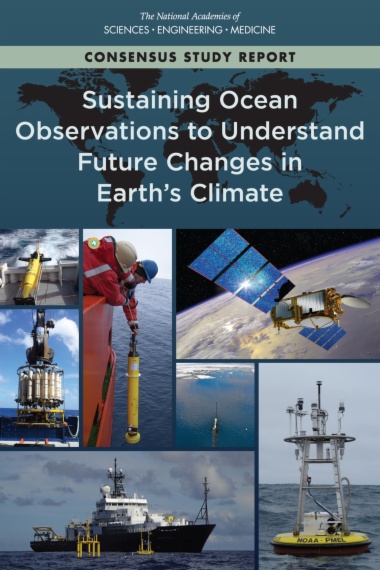

The ocean is an integral component of the Earth's climate system. It covers about 70% of the Earth's surface and acts as its primary reservoir of heat and carbon, absorbing over 90% of the surplus heat and about 30% of the carbon dioxide associated with human activities, and receiving close to 100% of fresh water lost from land ice.
With the accumulation of greenhouse gases in the atmosphere, notably carbon dioxide from fossil fuel combustion, the Earth's climate is now changing more rapidly than at any time since the advent of human societies. Society will increasingly face complex decisions about how to mitigate the adverse impacts of climate change such as droughts, sea-level rise, ocean acidification, species loss, changes to growing seasons, and stronger and possibly more frequent storms.
Observations play a foundational role in documenting the state and variability of components of the climate system and facilitating climate prediction and scenario development. Regular and consistent collection of ocean observations over decades to centuries would monitor the Earth's main reservoirs of heat, carbon dioxide, and water and provides a critical record of long-term change and variability over multiple time scales. Sustained high-quality observations are also needed to test and improve climate models, which provide insights into the future climate system. Sustaining Ocean Observations to Understand Future Changes in Earth's Climate considers processes for identifying priority ocean observations that will improve understanding of the Earth's climate processes, and the challenges associated with sustaining these observations over long timeframes.